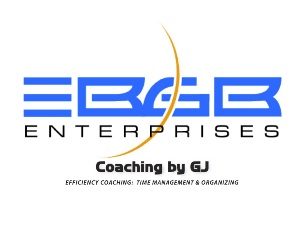Most of us understand the broad principles of effective time management, and can see that it is important to manage our time as thoughtfully as possible. The difficult part for busy professionals is actually applying time management techniques on a regular basis.
Here are practical, easy to apply techniques that will help. Once the initial, analytical stage is completed, the techniques outlined here are simple ones that can be applied on a daily, weekly, and monthly basis, as a matter of routine.
Preparation Week: the first step is the most time consuming one: analyzing your current situation. To establish in what condition your management of time is at this moment, you will need to complete at least a week, perhaps two, of preparation. You will also need to make note of any activities that fall on a monthly basis, such as team meetings, or budget performance reviews.
Recording Your Activity: for one week at least, on a daily basis, you will need to keep a detailed record, diary, or time log [if you need one – email me], of what activities you are involved in, and how long you spend on each of these. Be as detailed as you can, so that you can analyze your activities in depth. The experts in the time management field recommend that you split your day into at least 15 minute periods, and for very busy periods even smaller time periods of 5 or 10 minutes. For example, for that first 30 minutes after starting work in the morning, don’t just write down 8.30 to 9.00 Started work, opened emails, talked to colleagues, you need to break this down into at least three x 10 minute periods. If you have chosen an unusual week, for example when you are absent from the usual routine, on a training course, complete the log for the missing days, the following week. Be disciplined about this. Use a notebook, or diary, or prepare a paper or pc based time-sheet for each day. Take this with you everywhere, or at the very least, complete it every time that you return to your personal work area. If it will help you, get the support of your colleagues, and ask them to remind you that you should be recording your activities diligently.
Analyzing Your Activity: at the end of this period you will need to carefully analyze these records. The primary aim is to identify negative activities and events. These will include activities that you shouldn’t be involved in, or could delegate, activities that you are spending too long on, activities that are unproductive, and events which are disruptive or unproductive. Some of the activities that you identify here will be unique to your situation, but some will be common to most professionals, such as being inappropriately interrupted by colleagues, by telephone calls aimed at others, by attending meetings which are not relevant to you, by surfing on the internet, by focusing on low-priority tasks instead of more important, but more difficult, ones. However, it is also important to identify the positive activities and events, so that you can consider how appropriate is the time that you are currently allocating to these. Examples could be how much time you are spending in supporting, or coaching, your team members, or how much time you are giving to the building and maintaining of relationships with others, or how much time you are spending on addressing quality management issues. With a clear picture of how you are spending your time, you can then move on to the next step.
Talk with Stakeholders: these are the colleagues, the teams, the managers, perhaps suppliers, perhaps customers, who have a legitimate interest in how you perform at work and who will be affected by the changes that you will be making. You may also need to arrange discussion with key individuals, before you take the next few steps that follow.
Listing Your Responsibilities: separately from the recording activity, you should make time to review your job description, yourself if it is current and up to date, with your line manager if it is in need of a formal review. The purpose of this is to clarify what your role is and what are your formal responsibilities. It is often the case that, because of poor time management and the problems that this creates, role and responsibilities are allowed to drift, to the point where the individual is not carrying out the activities that they are meant to. A clear picture of what the role and responsibilities actually is an essential part of building a strong foundation on which to plan your new approach to managing your time.
Listing Your Goals: this is another essential part of building that foundation as a professional, a manager or specialist, you will have corporate level and operational level goals which your activity is meant to contribute to and help achieve. In parallel, you will have personal work performance and personal development goals that you should be working towards. Identifying and reviewing these will enable you to clarify them and take them into consideration when you plan the changes that you will be making.
Eliminating or Reducing Unnecessary Activities: with the information that you have collected and considered, it is now time to take some action. In simple terms this means identifying those activities, events, and periods of time, that are not contributing to you fulfilling your role and your responsibilities, and not helping you to contribute to the achievement of the corporate and operational goals nor your own personal goals. In your action plans, and your daily, weekly, monthly, lists (that we discuss below) you can then ensure that you do not continue wasting time and effort on any of these negative, unproductive, activities.
Prioritizing Activities: you may need to talk with your team, and-or with your line manager, possibly with internal or external suppliers and customers, to clarify and confirm what your priorities should be. This could be an opportunity to discuss how you could delegate some tasks to others, perhaps simply because you should not be doing them in the first place, perhaps as a developmental activity to help a team member learn new skills. The aim is to have a clear picture of which are the high, medium, and low priority tasks and events. You can then allocate an appropriate time of day, week, or month, to work on these, and an appropriate time period that ensures that you will be able to complete these successfully.
Preparing Action Lists: sometimes called To Do lists. This is a relatively simple activity, where you look at the tasks and events of the coming day, week, and month, and list the activities that you intend to carry out, and when and for how long you will work on them. You will, of course, need to continually check that these activities match up with your role, responsibilities, and goals.
Starting Each New Day: in reality, this can mean taking action at the end of the previous day, your last task of the day being to plan your specific activities, perhaps as a simple actions or to-do list, with times, perhaps as a list of priorities, that you intend to complete on the following day. Then, on starting work the next day you will have an action plan waiting for you. As the day proceeds, you should review your progress at intervals, and make adjustments where necessary. Then, at the end of the day, draw up the action plan, the list, for the next day.
Building in Break Times: don’t fall into the trap of trying to work continuously, all day without stopping, working through all your breaks, and worse, not taking a lunch break. Overwhelming evidence shows that we need to have breaks, and that without them our performance deteriorates dramatically the longer we go without. You should take at least one short break mid-morning, a minimum of 30 minutes at lunchtime, and a short break in the afternoon. Your organization should encourage you to take these breaks, as it is required by health and safety at work legislation.
Starting Each New Week: try to adopt the same approach as with daily planning. At the end of the last day of your working week, draw up an action plan for the next week, or at least for the first day in detail and the rest of the week in outline. Starting Each New Month: again, adopt the same approach as with weekly planning. During the last week of the calendar of budgetary month, prepare your action plan for the following month.
Strategic Planning: in parallel with the daily, weekly, and monthly planning, you should also have background plan that focuses on medium term and long term objectives. These can be workplace performance targets, such as end of year financial results, but should also include softer, but equally important targets, such as the development of individuals and teams (not forgetting your own, personal, development objectives). They can also include targets such as the improvement of working conditions, or relationships, for example between departments or with suppliers. These longer term plans should be referred to and progress reviewed, on at least a monthly basis.
In summary: without a structured approach to managing your time it is inevitable that you will run into difficulties, miss important deadlines, not give enough attention to your career and personal development, not deal fully with the needs of your team members, allow others to dictate how you spend your time at work. The result is that work will become a burden, and your performance will deteriorate. In addition, others will notice and your performance will be judged negatively. By following the simple, practical, steps outlined here, you will take control of the time you spend at work, and take control of the activities that you carry out. Once you have consistently applied these techniques for a month or two, they will become habit, absorbed seamlessly into your daily work life. You will find that you have less conflict, fewer problems, and you will meet most of your deadlines and targets. You will be managing your time effectively.
Gloria-Jean Brown
https://CoachingbyGJ.com [email protected]


